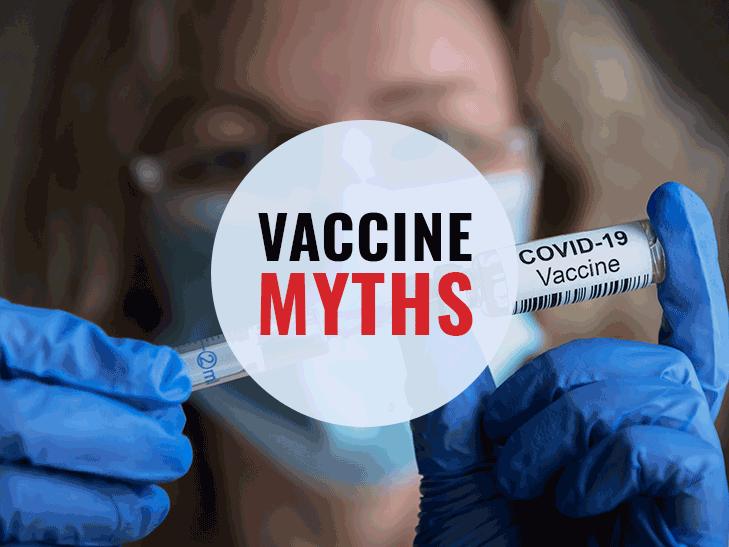Highlights
Also in this package
DUBAI: When you get the COVID-19 vaccine, you will turn into a zombie. A microchipped zombie. These outrageous claims form part of a disinformation drive peddled and hyper-shared on social media. Such scare-mongering has gained traction, around the time the first COVID shots were approved in December.
The result: vaccine hesitancy, a deadly phenomenon and considered one of the top 10 global health threats, the WHO warned. Self-styled vaccine disinformation evangelists have a field day questioning not only the speed by which the shots had been developed, but also their efficacy and safety.
Consider these:
Psychologists and data scientists are stumped. Fake news and false rumours reach more people, penetrate deeper into the social network, and spread much faster than accurate stories, according to a massive study of Twitter data culled over 10 years, the results of which were published on January 21, 2021 in the journal Science.
And that's never been clearer than today, with the alarmist lies peddled by the anti-vaxx camp, as the world grapples with the knock-on effects of pandemic-driven lockdowns. Is it because our brain is hardwired to fit our “cognitive bias” — actively seeking things that conform with our worldview — or to be the first to share and break what we think is an earth-shattering, world-beating story, only to realise we've fallen into a fakenews honeytrap?
Here are some of the most common falsehoods and outright disinformation circulating about coronavirus vaccines:
How to verify information

The COVID-19 pandemic has spawned another deadly disease, called infodemic. There’s an overload of information on reputable sites, social media and other online channels. So it’s challenging to sift credible information from misinformation. And in times like these, fact-checking is crucial.
The best approach would be to cross-check with credible sources of information like the sites of the World Health Organisation, US Centres of Disease Prevention and Control, and such entities. Alternately, there are agencies that provide fact-checking services on their site.
Here’s a list of sites which will allow you to verify the information you have received. Some of these sites have been reviewed by Media Bias Fact Check.
Snopes.com
Formerly known as the Urban Legends Reference Pages, Snopes is a well-known website that help debunk rumours and urban legends. The site was verified by the International Fact Checking Network (IFCN), which harps on “non-partisanship and fairness, transparency of sources, transparency of funding and organisation, transparency of methodology, and open and honest corrections policy.”
FactCheck.org
The Annenberg Public Policy Centre project at the University of Pennsylvania aims to reduce deception and confusion in US politics. Since there’s been a massive amount of misinformation on COVID-19, the site’s coronavirus coverage helps monitor the news’ accuracy on the pandemic.
Science Feedback
The IFCN-endorsed fact-checker is a worldwide network of scientists that sort fact from fiction in science-based media coverage. It has two websites — Climate Feedback and Health Feedback. Each fact-checker holds a PhD and has recently published articles in top-tier peer-reviewed science journals.
Lead Stories
The IFCN fact-checker tracks story trends and debunks fake news before it goes viral. It uses a specific engine called the Trendolizer to follow stories and is often the first to dismiss outrageous claims.
Check Your Fact
This is a verified signatory of IFCN’s Code of Principles. Though it primarily focuses on hoaxes and political statements, it has debunked a lot of coronavirus-related myths.
AFP Fact Check
An IFCN fact-checker from in the international news agency Agence France-Presse (AFP) based in France, it has been helping to sift through rumors, myths and misinformation about COVID-19. The news agency’s vast network helps in making diverse fact checks in many countries. They fact-check fake photos and videos too.
Reuters Fact Checks
An IFCN approved fact-checking unit at the Reuters, the UK-based news agency, it targets social media hoaxes and claims.
AP Fact Check
The IFCN fact-checker from the Associated Press focuses on politics, but it will answer your questions about the coronavirus. Submit them to FactCheck@AP.org.









